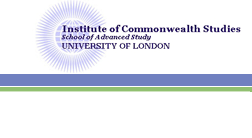Media Policy and Law in Sri Lanka
In 2009, with the support the Ford Foundation, the Media South Asia project began an analysis of the media legal and policy environment in Sri Lanka. This is an educational and advocacy venture which attempts to broaden and inform the perspectives in which media law, media policy and regulation are debated and determined in South Asia, with a specific focus on Sri Lanka. It seeks to widen the constituency which understands the changing international and technological context of the media as well as the continuing importance of the courts in defining media freedoms and of government in setting the framework within which different media operate. One of the principal project objectives is to work with educational institutions in Sri Lanka to develop new curricula in Media Policy, Regulation and Law. A linked objective is to produce materials which will support the teaching of such curricula and provide an accessible guide to the issues for identified stakeholder groups. A secondary objective is to increase expertise and to promote greater understanding of problems common to South Asian countries and greater cooperation in finding solutions to them.
The project is directed by Dr David Page and Dr William Crawley, Senior Fellows at the Institute of Commonwealth Studies. The Senior Associate and Principal Research Officer for the project is Ms Kishali Pinto-Jayawardena. Funding for the project was provided by the Ford Foundation over a two and a half year period between 2009 and 2012.
A full report on the outcome of the project is available on www.mediareformlanka.com
Scoping survey on India, Pakistan, Bangladesh and Sri Lanka.
This work on Sri Lanka builds on an earlier scoping study carried out in 2007/8 into the existing state of knowledge in this field in India, Pakistan, Bangladesh and Sri Lanka, which was supported by the Society for South Asian Studies in the UK.
Research agenda
The specific priorities for this scoping survey were as follows:
1. To develop a bibliography of existing published sources on media policy, law and regulation.
2. To provide an overview of important media issues being debated publicly, including constitutional rights and guarantees; and judicial responses to issues of media freedom, freedom of expression and information. Areas of research include:
· Restrictions on freedom of speech
· Media legislation and regulation
· Broadcasting in the public interest
· Media competition
· Media self regulation
· Freedom of information legislation
· Convergence issues
3. To identify areas of expertise in each of the South Asian countries
Research Associates for the scoping study
Research for the scoping study was was conducted by Lawrence Liang in India, by Md. Asiuzzaman and Nayeemul Islam Khan in Bangladesh, by Matiullah Jan, Jawad Hassan and Noreen Kazim in Pakistan and by Asoka Dias in Sri Lanka. Kishali Pinto-Jayawardena acted as a consultant to the project.
A Report on the scoping survey, which was completed in 2008, is published under Documents/Research Reports on this website.
Background to the research
Over the past twenty years, the South Asian broadcasting landscape has undergone seismic changes. What had been for decades a state-controlled monopoly broadcasting system operating within national boundaries has been transformed into a multi-channel, largely commercially driven, media environment, in which global and cross-border influences have acquired far greater salience. The issues thrown up by this dramatic transformation are legion and many of them have legal implications: issues of public interest, citizen's rights, accountability of broadcasters, freedom of information and expression, censorship, copyright etc. But national governments have been slow to take up the regulatory challenges inherent in this process. For the most part, they have been more reactive than pro-active and more interested in the revenue potential of new media than in their social or developmental potential. Individuals and pressure groups in some South Asian countries have appealed to the courts to interpret the public interest in the new circumstances. As long ago as 1995, the Indian Supreme Court gave a landmark judgement in which it ruled that the airwaves are public property and that legislation on broadcasting should reflect this important fact. But the Indian government has still not implemented the ruling. Public interest litigation was started in Pakistan in a similar cause around the same time but delays have attended that case too. In all South Asian countries, capacity to research, interpret and respond to these trends has remained very limited, despite a widely acknowledged need, and one of the key objectives of the research has been to extend professional knowledge and public awareness of these important issues.
Research papers
Papers written and presented by David Page and William Crawley at international conferences held during the course of the research are printed in the Publications section of this website











